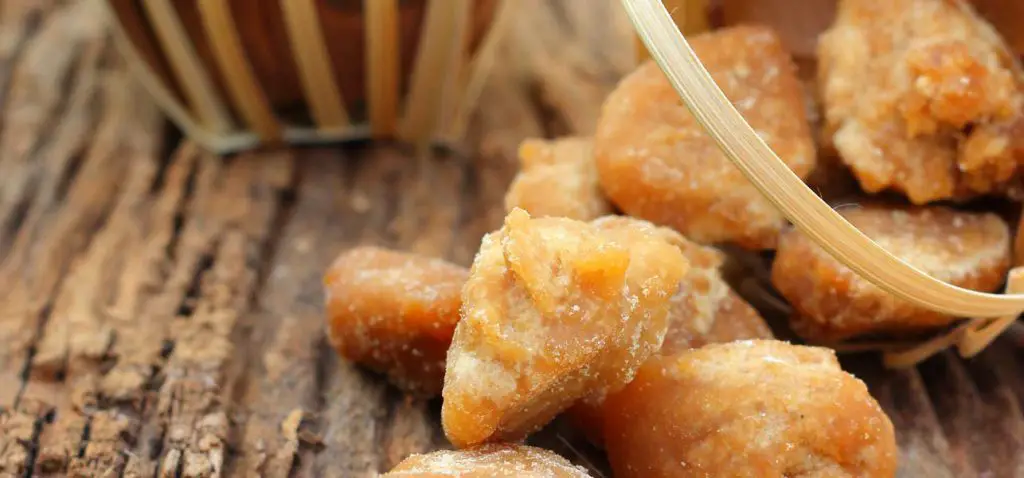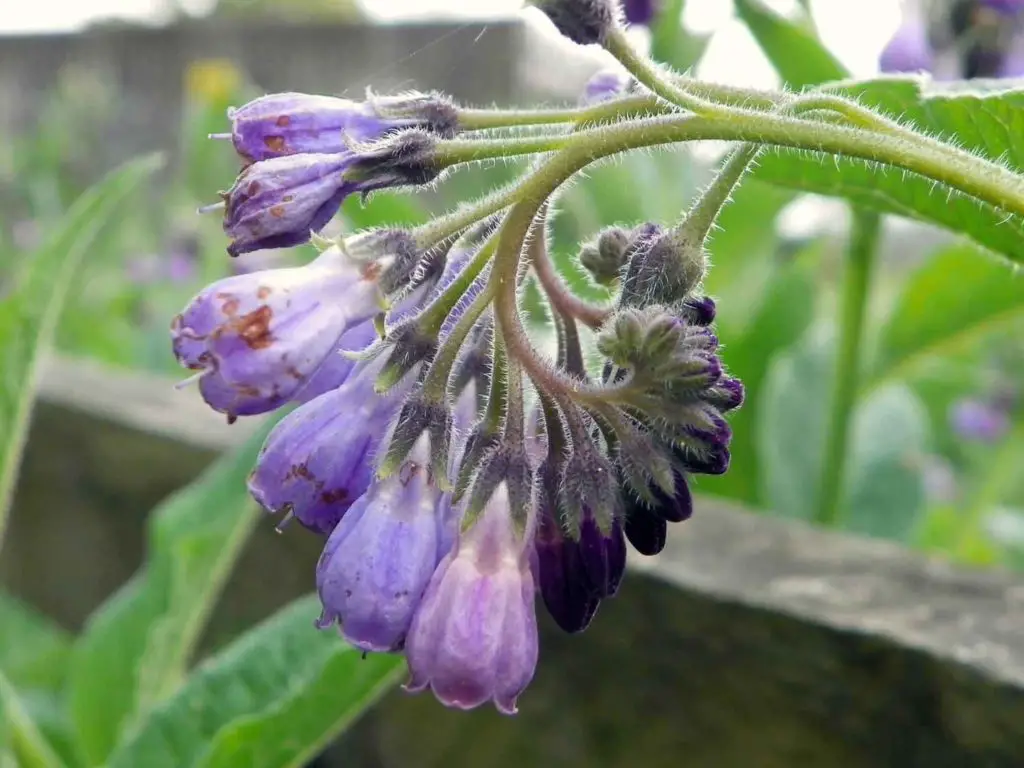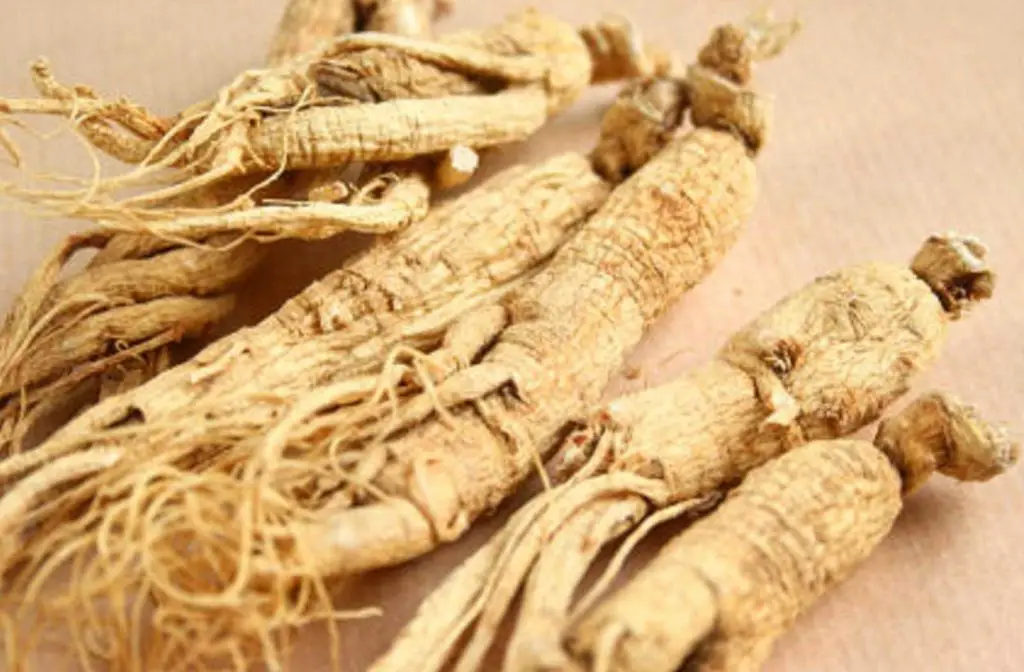What is Jaggery?
Jaggery is a traditional sweetener from India with a long history of use especially in Asia, Africa, and South America. It was and still is a popular sweetener used in baked goods, drinks, desserts, candies, a variety of dishes, and for medicinal uses. Jaggery is called “non-centrifugal sugar” because it is obtained through the process of evaporating water in sugar cane juice. This unrefined sugar can be made from sugar cane or palm sap, which is grown in a tropical environment. Jaggery is said to be superior to the alternative white sugar not only because it contains more nutrients versus empty calories, but it is also said to possess a variety of health benefits.
During the process of making jaggery, it’s not spun, therefore the molasses remains. Making jaggery involves three steps: extraction, clarification, and concentration. The canes or palms first are pressed, and the juice is extracted; following this the juice is left for any sediment to settle out, then strained. Finally, the pure juice is poured into a large flat pan and boiled where the impurities are removed. A sticky, dough like substance is formed and poured into molds to cool or left in the pan and cut into squares after it sets. They vary in color from light golden brown to dark brown depending on how it’s cooked and the quality. Jaggery is described as having a rich, sweet, and sometimes salty taste. Depending on the quality, the taste may vary and some may be more rich than others. Jaggery comes in blocks, liquids, or granules.
Depending on location, jaggery goes by different names. The other most common name besides jaggery is gur, the name it’s referred to in India. Other names include: Panela in Colombia, Piloncillo in Mexico, panela in Latin America, kokuto in Japan, and tapa dulce in Costa Rica.
Jaggery Benefits and Uses
Unlike other sugars, Jaggery has some good health benefits that come along with it. Due to the way it’s processed and not spun, the nutrients are kept and have some positive effects on health.
Weight loss
Though not backed by studies yet, anecdotal use suggests Jaggery may help with weight loss by boosting the metabolism. The vitamins and minerals might keep electrolytes balanced, while reducing water retention, and having a detoxifying effect on the liver.
Eczema
Again there is some anecdotal use for using Jaggery as relief for eczema by creating a homemade sugar scrub. Since Jaggery contains nutrients compared to refined sugars, it makes it a better choice for a sugar scrub and improving eczema. Always be sure to check with your doctor before trying new forms of treatment on your skin.
Diabetes
Anecdotal use suggests consumption of Jaggery results in a lower incidence of diabetes compared to other areas where white sugar is mainly consumed. However, Jaggery is still sugar and diabetics need to use caution when it comes to sugar dense foods and beverages. Studies are needed to find out just how jaggery can be used for diabetes, it is proposed that there is more so a good long term effect versus any short term effects.
Periods
A common problem with women around their period is mood swings. Jaggery has been said to release endorphins and reduce anxiety, as well as relax the body. It has also been said to serve as a muscle relaxer and reduce uterine cramps and abdominal pain. On top of these benefits, jaggery can help to regulate menstrual cycles.
PCOS
PCOS is an endocrine disorder that is characterized by weight gain, unwanted hair growth, infertility, mood changes, and acne. There are many more symptoms accompanying this condition and one of them is lack of or irregular periods. Though there haven’t been any studies published backing it, anecdotal evidence has shown that there are home remedies such as mixing Jaggery with black sesame seeds to induce a menstrual cycle.
Cough
Another one of the many benefits of Jaggery is its ability to help with a cough. Anecdotal evidence shows that Jaggery can sooth an irritated throat, as well as warm the lungs and dilate the respiratory track to aid with troubled breathing. Jaggery is also said to help with expelling phlegm along with cough relief. Currently there are no published studies validating this yet.
Skin
Jaggery has some benefits when it comes to the skin, these were found way back in 1993 in Japan. There were two bioactive phenolic compounds isolated from the molasses in the sugar cane used to make Jaggery that were found to have a property that inhibited tyrosinase activity. This was found to be a natural therapeutic use for treating abnormal skin pigmentation. Anecdotal evidence also says that eating Jaggery can help with acne and creating healthy, smooth skin.
Digestion
Another reported benefit of Jaggery is its’ digestive properties. Since it contains natural digestive enzymes, it’s said to reduce constipation, and enhance digestion. It also has the capability to neutralize stomach acid and reduce acid reflux symptoms as some people have reported.
Anemia
Studies dating way back to 1949 have showed promising data that non-centrifugal sugars such as Jaggery which contain iron, are readily absorbed when studied in rats. There have been a few studies since then on women and children that have shown more iron absorption when consuming Jaggery. If more studies follow this pattern, it may lead to new ways to help anemic patients.
Sugar vs. Jaggery: What’s the difference?
When processing the typical white sugar, it’s considered refined and all nutrients are removed. Jaggery on the other hand is unrefined, whole sugar, that is created through a process that preserves the minerals and plant chemicals. It is considered healthier than refined sugar because it contains small amounts of iron, calcium, potassium, magnesium, phosphorous, copper, chromium, selenium, zinc, and B vitamins. Although sugar is sugar, having beneficial minerals versus empty calories is preferred. On top of the nutrient content, Jaggery has unique medicinal properties and is used to help in a variety of ways listed above.
Jaggery dosage
Jaggery should be used in relatively small amounts due to its effect on blood glucose levels and body weight. Little amounts of Jaggery has been shown to yield positive benefits. 10 grams of Jaggery is around 38 calories and 10 carbs and 10 sugars. Larger amounts such as half a cup of Jaggery is about 383 calories. Sometimes it’s easy to add Jaggery to meals to sweeten them up, but the calories add up fast and that’s where the weight gain will come from. Although there are nutrients within the calories its still sugar and spikes blood sugar. Use caution when adding Jaggery to meals or consuming squares of Jaggery, small amounts can be calorie dense and have little nutrients.
Jaggery Side Effects, Safety, Dangers and Dangers
Long term and heavy use of Jaggery can lead to weight gain if large amounts are consumed. Sugar is sugar and too much can lead to weight gain, insulin resistance, and diabetes. Diabetic patients should talk with their physician and limit Jaggery usage in order to control sugars and prevent spikes. Excessive use of Jaggery in those without diabetes can also lead to blood sugar increase. Those with Inflammatory Bowel Disease (IBD) Jaggery isn’t recommended due to being harder to digest and the possibility of triggering symptoms. Prolonged use of Jaggery has been said to increase the risk for developing intestinal worms. Jaggery is safe and has not shown to be toxic in any way. It is also safe to be consumed during pregnancy in moderation. Always check with your doctor before consuming new supplements, especially if you have existing conditions.
References:
https://www.ncbi.nlm.nih.gov/pmc/articles/PMC1567304/






